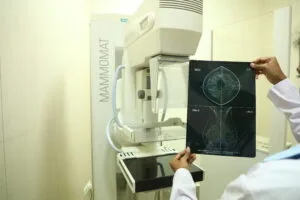Female Infertility and Serum Auto-antibodies – A Systematic Review

SUBURBAN JOURNAL CLUB
A monthly precis of some of the best, most influential journal articles.
Journal Article: Female Infertility & Serum Auto-antibodies: A Systematic Review
Journal: Clinical Reviews In Allergy & Immunology, Volume 53; Pg. No.: 78-86
DOI: 10.1007/s12016-016-8586-z
The fertility of a couple is defined as their ability to obtain a pregnancy. In humans, fertilizability (monthly probability of initiating a pregnancy) is difficult to estimate but is thought to be about 20% to 30%.
The 12-month rate of infertility (absence of pregnancy despite regular unprotected sexual intercourse) is estimated as 9% worldwide.
The causes of infertility can be divided into three main categories for which the prevalence is variable:
- Female causes (33% to 41%)
- Male causes (25% to 39%)
- Mixed causes (9% to 39%)
The contribution of serum auto-antibodies to infertility remains debated, but some data tend to show its role in infertilities classified as idiopathic.
The authors of this journal article have performed a comprehensive literature review to assess the association of auto-antibodies in female infertility and assisted reproduction.
Table 1: Summary of data available for serum auto-antibodies, in case of infertility, IVF or ICSI-IVF.
| Anti-Phospholipid Antibodies (APL) | Anti-Nuclear Antibodies (ANA) | Anti-tissue antibodies | Thyroid auto-antibodies | Anti-ovarian antibodies | Others | |
| Female infertility | Higher prevalence in infertile females (12% vs. 2% in normal). Weak influence of APL in fertility. | Increased prevalence seen in female infertility (20% vs. 3% in normal fertile women). | Higher prevalence of anti-smooth muscle antibodies (35% vs. 3% infertile women). | Higher prevalence of anti-TPO and anti-TG (16% in infertile population). | Higher prevalence, especially in women with early ovarian insufficiency. | Higher prevalence of ASCA and of CD associated auto-antibodies. |
| IVF | Higher prevalence of anti-beta-2-GP1 level (20%). But, no association between APL and the results of IVF. | Lower rate of implantation and pregnancy (14% vs. 32.4% in normal fertile women). Positive correlation between ANA level and fertility rate. | NA | Lower rate of fertilization implantation and pregnancy. | Higher prevalence. | NA |
| ICSI-IVF | No association between APL and ICSI-IVF. | NA | NA | No difference in the prognosis of ICSI-IVF. | NA | NA |
APL: anti-phospholipid; TPO: thyroperoxydase; TG: thyroglobulin; ANA: anti-nuclear antibodies; B2-GP1: beta-2-glycoprotein-1; ASCA: anti-Saccharomyces cerevisiae antibodies; CD: celiac disease; IVF: in vitro fertilization; ICSI-IVF: intracytoplasmic sperm injection-IVF; NA: not available
Table 2: Simplified auto-immune tests proposed for infertile women at admission to an ART program.
| Auto-immune pathology | Assays |
| Auto-immune endocrinopathy | TSH, T3, T4, anti-TPO antibodies, anti-TG antibodies, plasma cortisol |
| Aspecific auto-immunity | ANA, anti-tissue antibodies, complements (CH50, C3, C4), serum protein electrophoresis |
| Anti-phospholipid antibodies | Lupus anticoagulant, anti-cardiolipin antibody, anti-B2-GP1 antibody, blood platelet count, TPHA-VDRL, anti-prothrombin, anti-phosphatidylserine antibody |
| Celiac disease-associated antibodies | IgA and IgG anti-transglutaminase antibodies, IgA and IgG anti-endomysial antibodies |
| Other | ASCA, ANCA |
TSH: thyroid stimulating hormone; TPO: thyroperoxidase; TG: thyroglobulin; ANA: anti-nuclear antibodies, B2-GP1: beta-2-glycoprotein-1; ASCA: anti-Saccharomyces cerevisiae antibodies; ANCA: anti-neutrophil cytoplasmic antibodies. The recommendations in italics have not been proven and have been proposed by the authors of the review article.
The full article can be accessed at: https://link.springer.com/article/10.1007/s12016-016-8586-z



